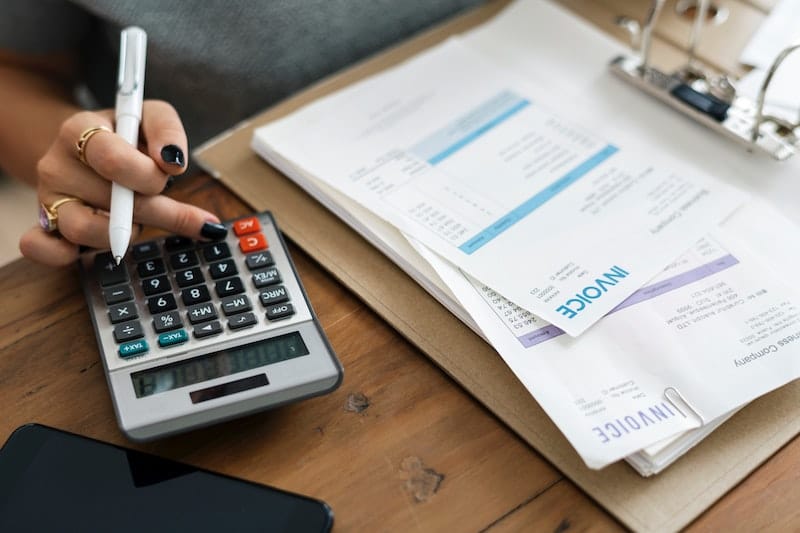How to get the best value when selling your La Paz home
Before you decide to list your La Paz area home for sale, there are several considerations that can have an impact how much you net from the sale of your home. Following is the second of two articles we’ve put together with some tips on the documents you’ll need to gather, seller’s costs, capital gains considerations and more. See Part 1 of our Seller’s Guide to La Paz Real Estate here.
These tips are just a small part of the considerations in selling your home, and not a complete guide. We recommend hiring a trusted and competent real estate agent to guide you through the process to ensure a successful outcome. Don’t see your questions answered here? Contact us at info@bajaliferealty.com. We are happy to answer your questions!

What Documents Will I Need?
A good real estate professional will provide a list of documents needed to successfully close a transaction. Don’t wait! Make sure you have clear and complete documentation before listing your property so that, when an offer is accepted, you will have everything you need to expedite the closing. Trying to find or get copies of these documents once you have an offer on the table can be stressful and delay or ruin a potential sale. You will most likely need:
- Your property title: usually a copy of your escritura or fideicomiso showing you own the property
- Copies of passports and visas for all owners listed on the property title document
- Proof of payment of your property taxes and fiedicomiso
- Facturas (invoices) from your contractors showing the value of any improvements made to the property
This is just a short list of the documents that may be needed. Your real estate agent can provide you with a full list based on your individual property and situation.
Make sure your ownership documents reflect the actual home
Many of the newer homes in La Paz and the surrounding communities were recently built, which means the seller purchased a lot, closed on it, and then built a home on the land. This typically means that the title document (either an escritura or a fideicomiso) may only reflect the purchase price of the lot and not the fully finished home. In order to sell your home, the title documents must reflect an actual home and not just the lot. If your title only references the lot, you will need several documents that will legally establish the property as a home, and establish the legal value of that home on that lot. This detail will become quite important later when we discuss capital gains taxes.

What Costs Do Sellers Pay?
Every transaction has closing costs and fees, so it’s always a good idea to understand those fees in advance. A good agent will give you a clear accounting of the fees and costs associated with selling your home. In Mexico, the seller is responsible for paying:
- Agent commissions (plus sales tax or IVA)
- Any back property taxes and fideoicomiso payments;
- Any capital gains taxes that are owed.
- Any fees related to canceling an existing fideicomiso, if applicable (depends on the bank)
Just like in the US or Canada, it’s important to pay your property taxes every year. If you owe fees and back taxes, these will be collected during the closing process, reducing your net proceeds. Additionally, the seller MUST be current on all fideicomiso payments or the bank will simply not review any documents related to the sale. Making sure your fees and taxes are up to date before you list your home will ensure a timely and beneficial closing.
The buyer pays all other costs and fees associated with closing the transaction. Surprises are no fun in real estate, so before you list your house, ask us to help you understand your specific scenario so we can give you the most accurate estimation of these costs.
Will I Owe Capital Gains on My La Paz Home?
When you sell your home, you are responsible for paying capital gains taxes on any monetary gain from the sale of the property. Understanding this process is one of the strongest reasons we recommend engaging your real estate agent early as possible in the process when you consider selling your home. In general, capital gains are assessed on the difference between the price you declared as the purchase price of the home on your original title document (either a fideicomiso or an escritura) and your net sales price. Since capital gains taxes can be as high as 35%, there are some details that you will want to pay attention to in order to minimize your capital gains tax burden:

- Your purchase price: if your title document includes your house (and not just the lot), you can check the current value of your home by searching the area within the CLAUSULAS section that says CONTRAPRESTACION. Here you will see the value in pesos that was declared when the house was registered. Even though you may have paid in US dollars when you purchased your home, it was nevertheless registered in pesos because the peso is the official currency of Mexico. If the title document reflects only the value of the land, then you will need to register the house at the new value before it can be sold.
- Did you make improvements? Just like in the US and Canada, you are able to claim any improvements that have been made to the official value of the home as part of your cost basis. However, in Mexico, only improvements that have facturas (official invoices that include sales tax or IVA) can be accepted for capital gains exemptions. If you do not have facturas issued by your contractor for the improvements, you are not completely out of luck. It is possible to re-state the value of the construction, called a “remanifestacion,” and still save money versus paying the capital gains taxes on the original difference (see Re-manifesting Your Home below).
- The net sales price: Your net sales price is the purchase price minus any real estate commissions paid. Most real estate agents’ listing agreements will state that the commissions (paid by the seller) include 16% IVA (sales tax). The reason for this is that, in order to reduce your net sales price by the commissions, you must present a factura for those commissions, and a facture must legally include 16% IVA. Paying the commissions in this manner means you can legally deduct the commissions from your sales price.
How the Exchange Rate Affects Capital Gains
A common question sellers ask about capital gains taxes is: “Why do I have to worry about capital gains taxes when I paid $100,000 USD when I bought it and I am selling it for $100,000 USD?” The answer goes back to the fact that Mexican real estate transactions (both purchase and sale) are legally recorded in pesos, not dollars. As an example, if a homeowner bought a house at $100,000 USD when the exchange rate was 15 pesos per US dollar. Now, the homeowner is selling his home for the same $100,000 USD, but now the exchange rate is 20 pesos per US dollar. This means that the actual purchase price was 1,500,000 pesos and the sales price is 2,000,000 pesos. So, even if you are selling your property for the same price in US dollars as when you bought it, in Mexican real estate terms you actually had a gain of 500,000 pesos and would therefore have to pay capital gains taxes on that amount (minus the sales commissions and/or any legal improvements).
How Can I Reduce My Capital Gains Taxes?
What if you owe a bunch of taxes? Is there anything you can do? There are strategies we can suggest to help you legally mitigate capital gains taxes, but they require coordination with attorneys and the municipality to prepare for the closing. Here are two popular examples of strategies to mitigate taxes:
- Re-manifesting your home: this is a popular strategy that can be used when the original manifested value of the home does not include additional construction and/or physical improvements. Your builder and/or an attorney can help you re-register the home’s value based on documented improvements. Keep in mind that you must have the necessary documents to remanifest your home. There is also a cost to remanifest, but often times those fees are much lower than the capital gains taxes you would otherwise pay. Speak with your real estate professional for more details.
- The exempt taxpayer: there are certain exemptions that can be claimed that will reduce your tax burden, but like any deduction, you must have sufficient documentation to claim it. There are available exemptions for:
-
- Mexican citizens
- Temporary or permanent residents
- Mexican taxpayers with an RFC number (a Mexican taxpayer ID) and recent tax returns
- Property owners who have lived in the home for at least 3 years
-
The actual exemption depends on your specific situation and the exemption amounts change over time. We are experienced in this process and can help you can optimize your tax savings based on the current legal rules.
Still have questions? We are here to help! Email us at info@bajaliferealty.com and we’ll be happy to answer your questions.
 " alt="Baja Life Realty" />
" alt="Baja Life Realty" />
Leave a Reply